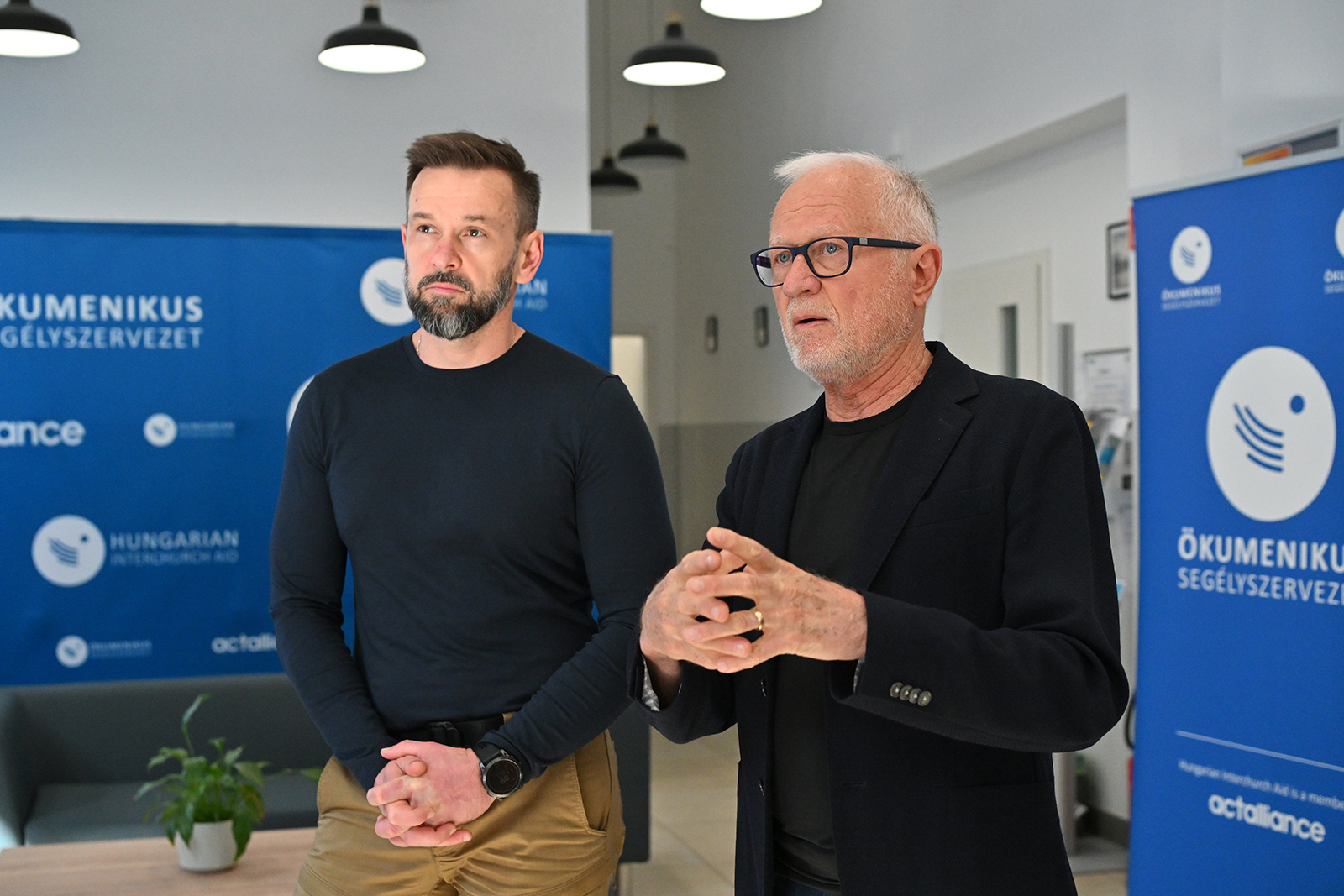War or Words Continues Over Ukrainian Grain Export Bans

Hungarian Minister of Agriculture István Nagy has called the European Commission’s decision to end the Ukraine grain ban “outrageous, unacceptable and non-transparent.” He is pictured here at second right, cutting a ribbon at a ceremony to inaugurate the new warehouse of Mecsek Füszért Zrt. in Veszprém on Sep. 14. Alongside him are (from left) Mrs. Lajos Nagy, CEO of Mecsek Füszért Zrt., Minister of State for Food Industry and Trade Policy of the Ministry of Agriculture Márton Nobilis, László Pekó, chairman of the board of Co-Op Hungary Zrt. (center) and Tamás Kovács, president of the contractor Szabadics Zrt. The investment, worth more than HUF 3.5 billion, was realized with a non-refundable state subsidy of HUF 765 million.
Photo by Tamás Vasvári / MTI
Satisfied that distortions in the domestic markets of five European Union member states bordering Ukraine have been eliminated, the European Commission allowed temporary measures banning the export of certain agricultural products to these countries to expire on Sep. 15.
The EC had introduced measures banning the export of wheat, maize, rapeseed and sunflower seed from Ukraine to Hungary, Poland, Slovakia, Romania, and Bulgaria on May 2, 2023, after these countries had introduced unilateral bans of their own on a broader range of agricultural products from their beleaguered neighbor.
These countries justified their prohibitions, claiming that an exemption from customs duties and quotas for Ukrainian grain, intended to expedite deliveries to countries in the Middle East and Africa and referred to as “Solidarity Lanes,” had caused a surplus in their domestic markets. Initially set to expire on June 5, the EC chose to extend the temporary measures until Sep. 15.
According to a statement from the EC, it had analyzed the data on the impact of the export of four agricultural products on the EU market and determined that the constructive attitude of all participants of the Coordination Platform had helped to solve specific problems and ensured that exports to third countries outside the EU passed through the community.
Accordingly, Ukraine agreed to put in place adequate measures to control the export of these four groups of goods in order to prevent any market distortions in the neighboring member states and, if necessary, to introduce legal measures, such as an export licensing system, within 30 days to avoid grain surges.
Extension Request
However, agricultural ministers from the five member states had continuously pressed for an extension of these measures until the end of the year, with authorities from Hungary and Poland threatening to reintroduce bans of their own if the EC followed through with its Sep. 15 expiration date.
Consequently, Hungary, Poland and Slovakia proceeded to do just that following the EC’s announcement, with Hungarian Minister of Agriculture István Nagy announcing in a video published on his Facebook page that, in addition to Ukrainian grain, the restriction would also include flour, cooking oil, honey, certain types of meat and eggs.
Speaking to Hungarian public media in Brussels on September 18, Nagy called the EC’s decision to let the temporary measures expire “outrageous, unacceptable and non-transparent.”
In addition to causing a “serious problem,” Nagy said the fact that EC President Ursula von der Leyen had consulted on the matter with Ukrainian President Volodymyr Zelensky rather than with the heads of member states “raised separate political questions.” He called for a reinstatement of the EU ban on Ukrainian grain imports in neighboring member states, with the option for any member state to ask for an exemption.
In response to the reintroduction of the unilateral bans, the EC called on Poland, Hungary and Slovakia to be constructive.
Spirit of Compromise
“What is important right now is that all countries work in the spirit of compromise and engage constructively,” a commission spokeswoman said.
Meanwhile, Ukraine responded by announcing that it would sue Hungary, Poland, and Slovakia in the World Trade Organization, Ukraine’s Trade Representative Taras Kachka told Politico.
“It is important to prove that these actions are legally wrong. And that’s why we will start legal proceedings tomorrow,” Kachka said on September 17. A WTO spokesperson confirmed that Ukraine had taken the first step by filing a complaint to the global trade body.
“We can confirm that a request for consultations was received Monday evening,” the spokesperson told international news wire Reuters.
This article was first published in the Budapest Business Journal print issue of September 22, 2023.
SUPPORT THE BUDAPEST BUSINESS JOURNAL
Producing journalism that is worthy of the name is a costly business. For 27 years, the publishers, editors and reporters of the Budapest Business Journal have striven to bring you business news that works, information that you can trust, that is factual, accurate and presented without fear or favor.
Newspaper organizations across the globe have struggled to find a business model that allows them to continue to excel, without compromising their ability to perform. Most recently, some have experimented with the idea of involving their most important stakeholders, their readers.
We would like to offer that same opportunity to our readers. We would like to invite you to help us deliver the quality business journalism you require. Hit our Support the BBJ button and you can choose the how much and how often you send us your contributions.










